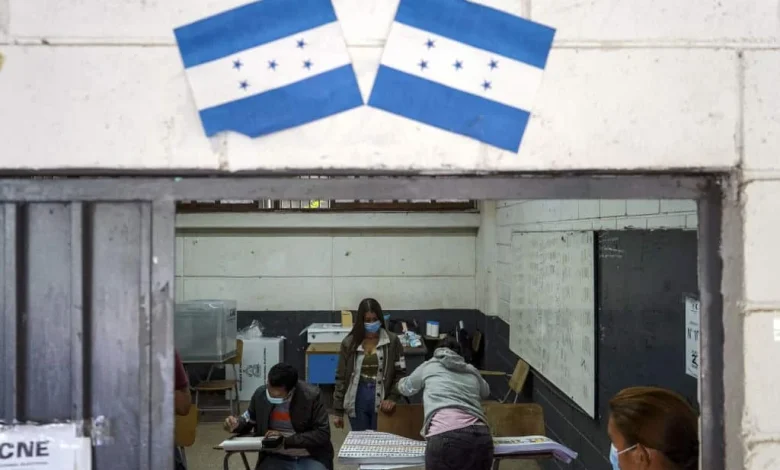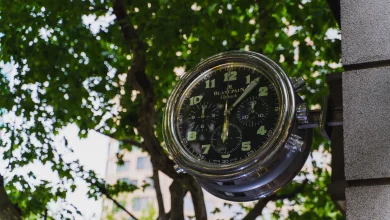Uncertain Path to the Polls: Integrity and Trust at Risk in Honduras’s 2025 Elections

Honduras will hold general elections on November 30 amid growing political tensions and concerns over electoral integrity. Conflicts among members of the National Electoral Council (CNE) and the controversial roles of the Public Ministry, the Armed Forces, and the National Congress have heightened uncertainty about the credibility of the electoral process.
The role of the international community has become increasingly important in safeguarding the will of the Honduran people, given the high risk of contested electoral results stemming from deep public mistrust and weak electoral institutions. The electoral observation missions of the Organization of American States (OAS) and the European Union (EU) are critical for providing technical assistance and urging Honduran authorities to guarantee free and fair elections.
The Trump administration had remained publicly silent on the upcoming vote, following a directive issued by Secretary of State Marco Rubio in July 2025 instructing officials to “no longer issue election-related statements or social media posts from Washington unless there is a clear and compelling foreign policy interest.” Notwithstanding, on November 12, Deputy Secretary of State Chris Landau stated over social media that the U.S. government is closely monitoring the situation and urged Honduran authorities to respect the rule of law. This was a significant message, as even high-level visits by administration officials to Honduras had previously focused primarily on migration and defense cooperation, rather than democratic governance or electoral integrity.
All major political parties: Libre, National and Liberal, have faced corruption allegations, and the outcome remains uncertain amid broad disillusionment with the political class. The following Q&A provides an overview of the pre-electoral situation in Honduras.
- The National Electoral Council has faced multiple challenges since the March 2025 primary elections. What are the main political and internal challenges they have faced in order to guarantee a peaceful election?
The fragmentation of the National Electoral Council (CNE) has become a major obstacle. The division of positions in the CNE among the three major parties, who each hold one seat, means the body lacks full institutional independence, and the primary elections were plagued by logistical failures and allegations of manipulation. The Council’s internal division along party lines has delayed key administrative and technical decisions. The deadline for awarding the contract for the Preliminary Results Transmission System (TREP) lapsed amid internal disarray within the Council. Although it later voted to approve the contract terms, the decision generated widespread skepticism.
Likewise, organizations have exposed that internal capacity and operational safeguards for transparency and security remain weak. For instance, the reliability of biometric devices, communication systems, and secure transport appears to have been compromised.
While the Armed Forces are constitutionally responsible for transporting electoral materials, persistent doubts remain regarding their neutrality in fulfilling this duty. During the primary elections, the Armed Forces failed to deliver electoral materials to some voting centers, further deepening public mistrust in the process. To date, the Attorney General has not investigated and held anyone accountable for this failure. Additionally, the ruling party’s presidential candidate, Rixi Moncada, who previously served as Secretary of Defense, has raised further concerns about the military’s independence and impartiality. The company that will assist the military in transporting electoral materials has not yet been selected by the CNE, adding to the uncertainty surrounding this critical stage of the electoral process.
- The presidency will be decided in a single round, potentially with a narrow margin; any perceived irregularities could spark accusations of fraud and post-election unrest. Is there a real possibility of dispute and instability after election day?
Tensions are escalating as leading candidates trade accusations of electoral fraud. The possibility of dispute and instability after election day is real. Deep polarization, mutual distrust among political actors, and weak institutional safeguards could make it difficult for losing candidates and their supporters to accept the results, potentially leading to protests or broader political unrest.
President Xiomara Castro, representing the left-wing Libre party, has claimed the opposition is plotting an “electoral coup”. Her statement followed the release of audio recordings by Attorney General Johel Zelaya, an ally of the government, in which Electoral Council member Cossette López, opposition lawmaker Tomás Zambrano, and a military officer, allegedly discussed manipulating the vote count to harm the ruling party. Meanwhile, Salvador Nasralla, the Liberal Party candidate, has called on citizens to “defend their vote” and reject fraud, accusing Libre candidate Rixi Moncada of using the Public Ministry (MP) to intimidate the opposition. The National Party candidate, Nasry “Tito” Asfura, has also denounced alleged fraud, warning that “democracy is at risk.” Similarly, the National Party’s representative at the CNE, Cossette López, has accused Libre of planning a large-scale fraud.
Following the 2017 elections, Honduras experienced widespread unrest and violence amid accusations of electoral fraud. The disputed results sparked massive protests, clashes between demonstrators and security forces, and a harsh government crackdown that left dozens dead and hundreds injured. The crisis deepened public distrust in the country’s electoral institutions and set the stage for ongoing political polarization, which continues to shape the tense atmosphere surrounding the current electoral process.
- In July 2025, the OAS Electoral Observation Mission stressed that authorities “must have the necessary security to carry out their functions and express their opinions free from intimidation and excessive judicial intervention.” What prompted this statement?
Allegations have emerged that the current Attorney General lacks independence, having been initially elected by an ad hoc commission dominated by Libre, the ruling party. Prosecutorial and judicial bodies have been used to pressure or obstruct the CNE and the Electoral Justice Tribunal (TJE), including the filing of politically motivated complaints against electoral authorities.
Marlon Ochoa, the Libre Party commissioner at the CNE, filed complaints against the other two council members, Ana Paola Hall and Cossette López, accusing them of treason, electoral offenses, and abuse of authority in connection with their handling of the electoral schedule. In July 2025, the Attorney General publicly denounced what he described as a conspiracy against the elections and subsequently ordered a raid in the CNE, heightening tensions and raising questions about the independence and stability of the country’s electoral authorities.
On November 4, 2025, the Public Ministry requested that the Supreme Court of Justice (CSJ) lift the immunity (“antejuicio”) of two magistrates of the TJE: Mario Alberto Flores Urrutia and Miriam Suyapa Barahona Rodríguez, on grounds of judicial misconduct (prevaricato judicial). The Public Ministry alleges that on October 27, 2025, the two magistrates issued a final resolution ordering the CNE to register two congressional candidates without the participation of the third member of the tribunal and without a duly constituted quórum. Although the CSJ declared the pretrial motion against the TJE magistrates inadmissible, these actions continue to generate fear.
The CNE is the institution responsible for guaranteeing elections, while the justice system is limited to removing obstacles to the electoral process, ensuring its smooth functioning. However, in Honduras today, judicial intervention has increased uncertainty and weakened perceptions of impartiality and trust in electoral institutions.
- The CNE has published a census of 6,522,577 eligible voters for the 2025 elections, including 496,307 who are registered abroad. Are basic conditions guaranteed for these voters?
The CNE has approved 12 voting centers in the United States and 15 polling stations (Juntas Receptoras de Votos) located in Miami, Florida, New York, Houston, Texas, New Orleans, Louisiana, Washington D.C., Los Angeles, California, and Dallas, Texas. However, analysts have flagged that the lack of a specific regulation “threatens the transparency and effectiveness of the participation of Hondurans abroad”. There is no regulation for the vote abroad that governs how exactly voting will work: how centers are selected, how ballots are secured, how results are transmitted, which creates legal and operational ambiguity. Additionally, large segments of the diaspora have been excluded, raising equity concerns. For example, Honduran citizens living in Spain (250,000) have been left out because no JRV is being established there.
- Given the complex political and social context in Honduras, how can the U.S. and the international community effectively support the Honduran people?
A bipartisan bill introduced in the U.S. House of Representatives in June 2025 sent an important message to U.S. policymakers, underscoring the need for proactive engagement to help ensure free, transparent, and credible elections. As electoral results may be contested, it is equally vital to support a peaceful transfer of power, a process that requires not only immediate action but also sustained short- and medium-term efforts.
The 2021 Honduran elections demonstrated the critical value of robust electoral observation. International missions from the Organization of American States (OAS) and the European Union, alongside national observer groups from civil society, played a vital role in monitoring the electoral process and providing independent verification of results. Their presence helped ensure transparency, deterred potential irregularities, and lent credibility to the outcome. When Xiomara Castro won the presidency, these observation efforts contributed to broad acceptance of the results and facilitated Honduras’s first peaceful transfer of power between opposing parties in over a decade.
WOLA recommends the following key measures for members of the international community:
- Active Monitoring: Maintain close coordination with international observation missions (OAS, EU) and with domestic observation groups to ensure transparency and accountability.
- Support for Civil Society and Independent Journalism: Provide support and assistance to journalists, human rights defenders, and civil society organizations that have faced attacks and intimidation, reinforcing their ability to operate freely and safely specially for the transition process.
- Technical and Institutional Support: Strengthen programs that support the National Electoral Council (CNE) and the Electoral Justice Tribunal (TJE) in areas such as transparency, technology, and election management.
- Conditional Assistance: Link future bilateral cooperation to measurable progress in judicial independence, anti-corruption efforts, and electoral integrity.
- Public Messaging: Issue statements that encourage a peaceful, inclusive, and credible electoral process, reinforcing international commitment to democratic principles.
In this critical moment, sustained international engagement, centered on democracy, transparency, and respect for human rights, will be essential to supporting the Honduran people’s right to choose their leaders freely and peacefully.
As Honduras approaches the transition to a new administration, continued engagement and attention from the international community will be crucial. In this critical moment, sustained international involvement—focused on strengthening democracy, ensuring transparency, and upholding human rights—will be essential to supporting the Honduran people’s right to freely and peacefully choose their leaders. Ongoing dialogue with civil society and key institutions will also help reinforce accountability and accompany the new government as it faces significant governance challenges.





